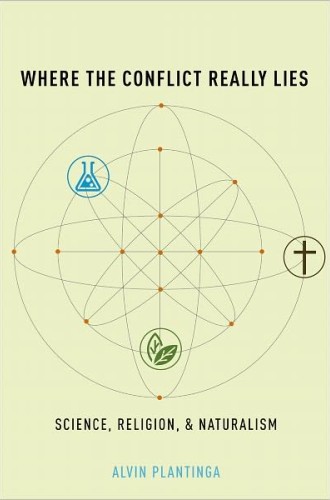Where the Conflict Really Lies, by Alvin Plantinga
I once heard Isaac Asimov tell the great physicist Freeman Dyson that Newton’s laws are trivial—so trivial that his dog could understand them. Asimov challenged Dyson to explain how his dog could leap in the air and catch a tennis ball in midflight if the dog didn’t understand the physical laws controlling the motion of the ball.
At some level Asimov was right. A dog, and a center fielder for that matter, must understand something about physics to catch a ball in flight. But this level of understanding—for both dogs and professional baseball players—rarely, if ever, includes knowledge of the differential equations Newton developed to describe the trajectory of masses in gravitational fields. In fact, such knowledge would prove of no value to a baseball player who took the time to acquire it.
According to evolutionary theory, our minds, and those of our dogs, developed in response to reproductive challenges. Genes for greater intelligence spread through the gene pool when those genes enhanced reproductive success. This seems straightforward: dodging projectiles launched by enemies and catching coconuts as they fall from trees certainly seem like useful survival traits. In what sense, however, is one’s reproductive success enhanced by solving the differential equations associated with falling coconuts? Surely we have learned from the social structures of our high school lunchroom and from sitcoms like The Big Bang Theory that such skills actually interfere with reproduction. Our brains, it seems, have been shaped to develop beliefs about the world that are relevant for reproduction but have little to do with truth. So if purely evolutionary forces are entirely responsible for the production of our brains, we have no reason to suppose that the beliefs produced by those brains—including belief in evolution—are true in the traditional sense.





